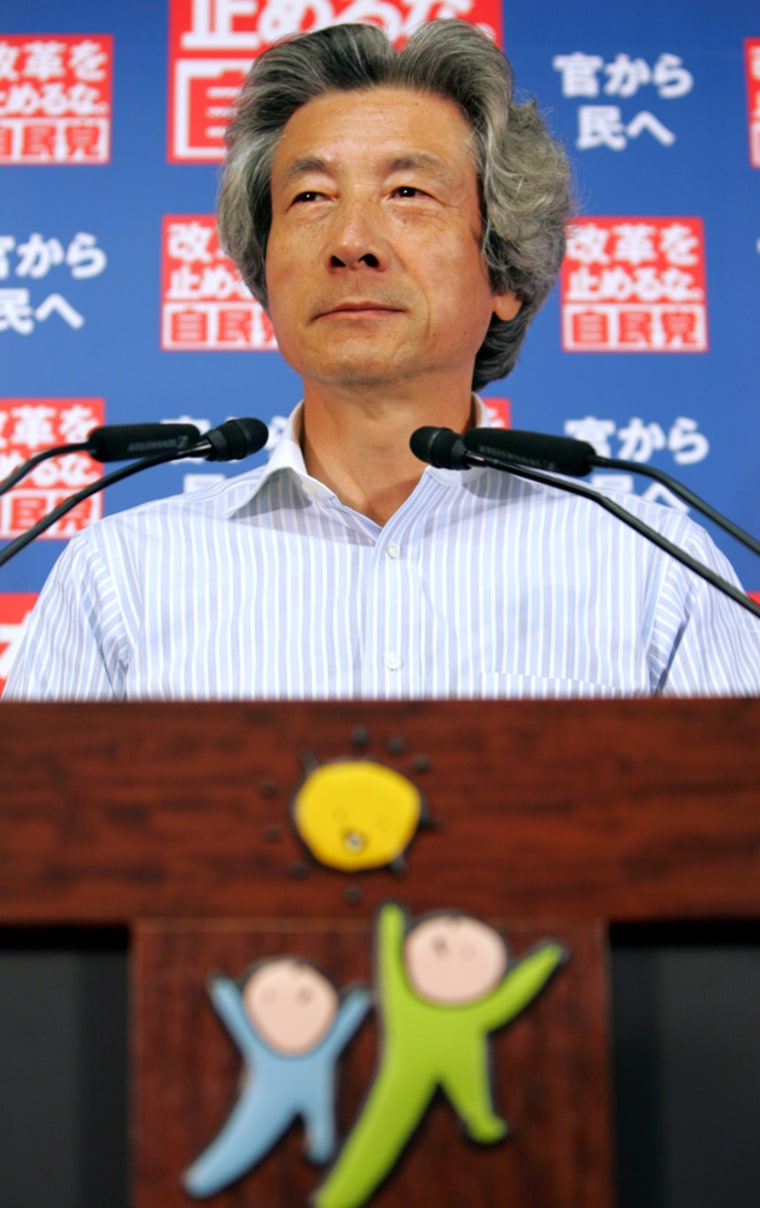Japanese stocks surged and the yen gained Monday as investors and business leaders welcomed the landslide victory by Japan’s reform-minded ruling party in weekend parliamentary elections amid growing optimism about the nation’s economic prospects.
“The win was so much more convincing than expected that the election succeeded in sending a strong message of reform,” said Jun Yamamoto, senior economist with Mizuho Research Institute in Tokyo. “The image is all about moving ahead with reforms. And the mood is bright.”
Voters gave strong support to Prime Minister Junichiro Koizumi in an election widely seen as a referendum on his reforms for a more market-friendly, efficient economy and a smaller government.
His Liberal Democratic Party won a total of 296 seats in the more powerful, 480-seat lower house, public broadcaster NHK reported, well above the 241 seats needed for a majority and the 249 seats it held when Koizumi dissolved the chamber last month.
The Nikkei 225 index gained 1.6 percent to finish at 12,896.43 points Monday. Stocks had risen ahead of the election in anticipation of an LDP win, as newspaper polls had predicted, and some analyst were worried the rally would fizzle once the results were in. The benchmark index has gained about 15 percent in the last three months.
Landslide win
But the magnitude of the victory came as a surprise to many, with the ruling Liberal Democrats gaining their greatest ever portion of the chamber’s seats. The ruling coalition now commands a two-thirds majority in the lower house of the Diet, or parliament — enough to overrule the less powerful upper house.
Koizumi made it clear that if he won, he would press ahead with plans to open the still protected Japanese market to foreign investment and to turn over businesses overseen by the government to the private sector.
At the center of that agenda was the privatization of Japan’s post office system and its $3 trillion in savings, making it the world’s biggest banking organization.
It was the upper house’s rejection of the postal reform bill last month that prompted Koizumi to call these elections.
The public has grown suspicious of the way the postal system was being run, with its funds being channeled to dubious projects and even accusations that some of the money was lining the pockets of retired bureaucrats.
Private management of the system would bring more competition, accountability and transparency, Koizumi and other LDP politicians claim — helping revitalize the economy at a time when it is gradually emerging from a decade-long slowdown.
Still, some worry that privatizing the postal system — and other parts of Japan’s economy — may create greater income disparity and make Japan more vulnerable to foreign investors, many of whom are seen as greedy and self-serving.
Koizumi reaffirmed Monday that the reform bills will get passed in a special session of parliament opening as soon as Sept. 21.
Boon to industry?
Business leaders welcomed the election results.
“We hope that the bills to privatize the postal system will get passed quickly and serve as a beginning for speedily carrying out further structural reforms, which are under consideration,” Nippon Keidanren, Japan’s leading corporate lobby, said in a statement.
The yen also got a lift, partly due to demand for Japanese stocks. The dollar was trading at 109.61 yen in Tokyo midafternoon, down 0.89 yen from late Friday and below the 109.65 yen it bought in New York later that day.
“The hope now is that there is a shift in the direction and speed of reform,” Richard Jerram, an economist at Macquarie Securities in Tokyo, told Dow Jones Newswires.
